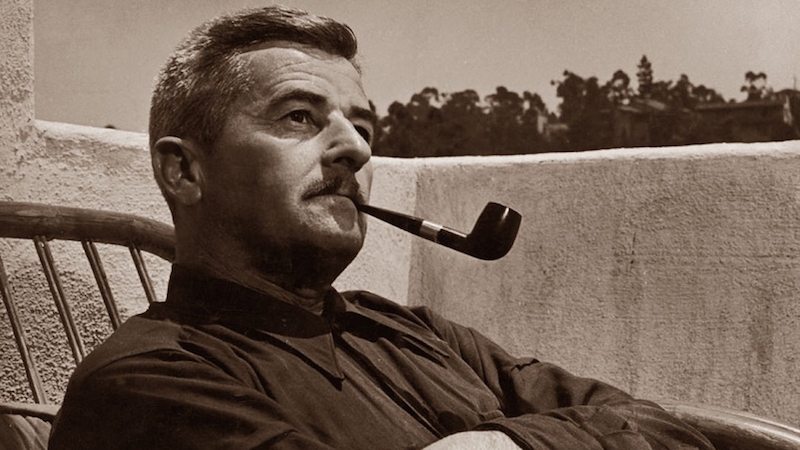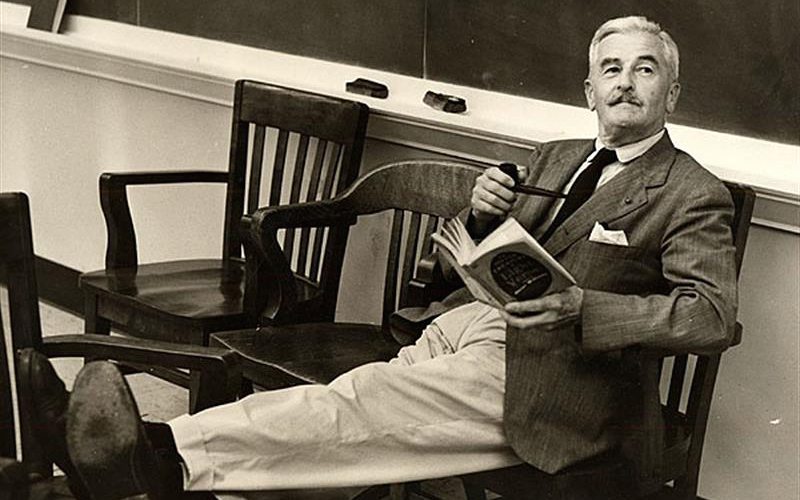William Faulkner
Episode #4 of the course “Significant American writers of the 20th century”
Born and raised in Mississippi, William Faulkner is known as one of the greatest writers of the American south. His unique style, insight into human consciousness, and disregard for literary convention make him one of the most recognizable writers ever. Faulkner knew since childhood that he wanted to write, and once he began to write for himself and not in order to meet the demands of publishers, he found himself free to write anything. The literary works that resulted from his embracing that freedom continues to impact people today.
William Faulkner was born in 1897, raised from a young age in Oxford, Mississippi. Although he did not graduate high school, he briefly attended “Ole Miss” (the University of Mississippi), eventually dropping out. Already a widely-read poet, Faulkner focused his efforts on writing rather than studying. His first novel, Soldiers’ Pay, was published in 1925, with subsequent novels published throughout the 1920s and early 1930s. Still, he remained relatively unknown, making little money. He took a job as a Hollywood screenwriter and moved to California.
From the 1920s to the 1940s, Faulkner produced some of his most challenging and revolutionary literary work, including The Sound and the Fury, As I Lay Dying, and Absalom! Absalom!. In 1949, he finally received the recognition he deserved when he was awarded the Nobel Prize in Literature. Afterward, Faulkner also received two Pulitzer Prizes and other awards. He hated the fame but had an enormous ego; the tales of his literary vanity are legendary.
Faulkner’s impressive canon includes nearly 20 novels, over 100 short stories, 20 screenplays, and more. Much of his work focuses on life in the American south, including connections with nature, the politics of small southern towns, American racial tensions, and the interplay of human psychologies. He continued to write until his death in 1962, although it is his early works that are considered his masterpieces.
Quotes
“Never be afraid to raise your voice for honesty and truth and compassion against injustice and lying and greed. If people all over the world…would do this, it would change the earth.”
“Always dream and shoot higher than you know you can do. Don’t bother just to be better than your contemporaries or predecessors. Try to be better than yourself.”
“The man who removes a mountain begins by carrying away small stones.”
“You cannot swim for new horizons until you have courage to lose sight of the shore.”
“Wonder. Go on and wonder.”
Recommended books
Share with friends


